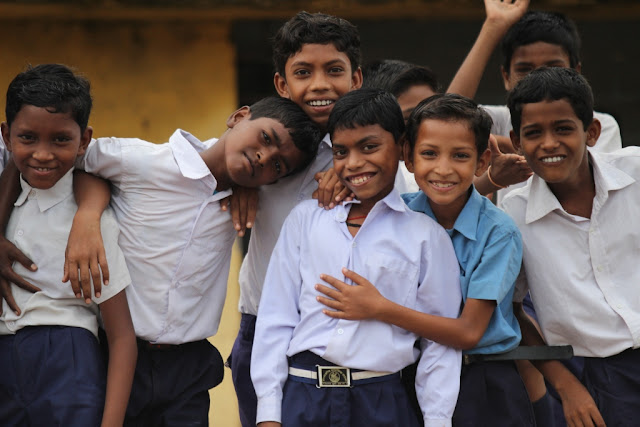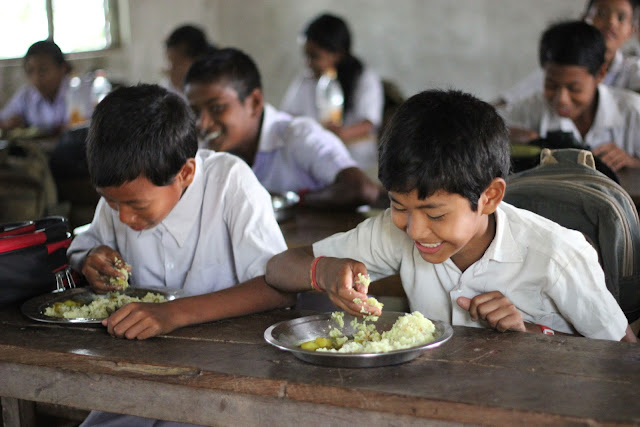All of us know
that eating healthy is essential for the proper development of mind and body. The importance of good nutrition especially
becomes more crucial when we think about children. Children require good nutrition for the proper
physical growth, working of organs and cognitive plus neurological development. In addition to these, a healthy diet also
helps in socio-economic development and healthy growth of children.
On the other
hand, lack of getting adequate nutrition for a long period can lead to growth
issues in children. Previous research has linked poverty and malnutrition to
smaller brain volumes, social withdrawal, poor writing-reading skills and delayed
physical growth in children. It is
worrying to know that around 159 million children across the world under age
five were stunted (not growing taller according to age) and another 50 million
were wasted (not gaining enough weight for height) in 2014. Stunting can delay
motor development, impair cognitive function and affect academic performance. Similarly, wasting in children, an
aftereffect of severe food shortage, can even lead to death.
Similarly, nutrition
has a direct link with education. Nutrition and education, in a way, are very
closely related. Good nutrition can help
improve behaviour, learning, school attendance and concentration. Nutrition for
children includes micronutrients like vitamins, minerals and macronutrients
like carbohydrates, protein and fat. A
deficiency of any of these nutrients can lead to adverse health outcomes
including death. Iron deficiency can impede cognitive development; vitamin A
deficiency weakens immunity and increases death risk from diarrhoea, measles
and malaria. Iodine deficiency can damage
the brain and lead to mental retardation. Zinc deficiency can leave a negative
impact on growth and immunity.
It was in an
effort to tackle all these problems the idea of school lunch programmes
was born. The main aim was to help improve the nutritional status of children.
But the school lunch programmes have also helped hold children back to
school. Apart from these, school lunch
programmes also help support local farmers and provide food security to children
during crisis. Currently several countries across the world including Brazil,
Italy, USA, Australia, France, Greece, Kenya, Korea, Finland, Japan, India and Spain have
school lunch programmes.
In India, apart
from The Government of India, The
Akshaya Patra Foundation, a NGO also serves mid-day meals in schools. The
organisation serves freshly cooked nutritious meals to over 1.4 million
children every day.
Now we know how
nutrition influences education and the role of school lunch programmes in
providing nutrition for children. Next is what we can do to improve lives of
millions of undernourished children around us.
Yes, there are lots of options – including volunteering, fundraising or
donating to the charity organisations who work for the welfare of these school
children.
One can get involved today and help transform
the world into a better place for children.
To know about the know the Importance of Food and Nutrition, visit: Food and Nutrition
To know about the know the Importance of Food and Nutrition, visit: Food and Nutrition












3 comments:
Yes, nutrition improves the health status of children. As education requires concentration, being healthy children can concentrate on their education.
Thank you Akshaya Patra you are educating india..
Wow, I dint know that nutrition has such a huge role in education until I read your article. I would also like to appreciate Akshaya Patra for the good work it has been doing for poor children in India.
Post a Comment